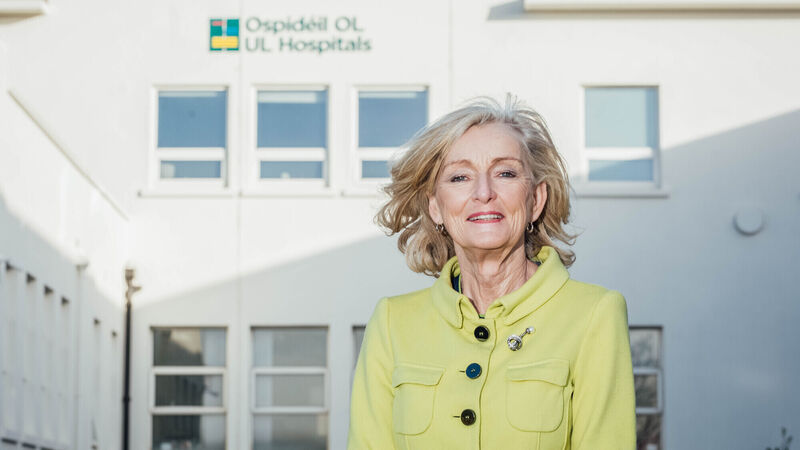Social media myths 'pose biggest risk to women in menopause'

Cathy Casey, consultant with UL Hospital Group in Nenagh Hospital, emphasises the importance of getting 'adequate, up-to-date, and evidence-based information'. Picture: Brian Arthur
The main risk for women in menopause and perimenopause is social media myths, a HSE expert in Tipperary has warned.
Cathy Casey runs the complex menopause service at the regional hub for women’s health in Nenagh Hospital.
“The main risk out there is all the myths and misconceptions and misinformation that’s out on social media,” Dr Casey told a HSE Midwest webinar on health during menopause.
“So it’s very important that you get adequate, up-to-date, and evidence-based information so that you can make a decision as to which treatment is best for you,” she added.
One example, she said, is the promotion of debunked data linking HRT (hormone replacement therapy) with higher cancer risks.
“If you look at the average risk for getting breast cancer in somebody between the age of 50 and 59 and taking HRT over five years, there is an extra four cancers per thousand women or the same as with the pill,” she said.
“If you look at taking more than two units of alcohol per day it’s an extra five cancers per thousand women. But if you look at somebody who has a high BMI of over 30 it’s an extra 24 cancers — a huge increase.”
Dr Casey also advised considering lifestyle and health changes as part of treatment.
“For some people you can be certainly more prone to cardiovascular disease, osteoporosis, and again the long-term effects on the bladder and vagina,” she said.
She added: “[heart disease] is very common, it is the biggest killer of us women as we go through menopause. Cancer is much much less so.”
Heart disease is linked to 34% of deaths in women compared to 4% for breast cancer, she explained.
“If you ask women what’s their greatest perception of the risk of death, all will think that it’s more cancer-related particularly breast cancer, when in actual fact one in four of us is going to die from a heart-related condition. And in many cases this can be totally preventable."
She urged women to look after their heart health as they age.
Brian Kennedy, a GP who also works at the complex clinic, said some women still have to fight for care.
“People should realize that if you’re in the menopause you can have very strong symptoms and it’s not going to be reflective in the blood test, so the blood tests don’t reflect it,” he said.
“So the GP has to believe you and has to give you a trial of the hormones and that can be a difficult one to nut out.”
Dr Kennedy advised that severe symptoms are not experienced by all women.
“So 20% of women cope quite well with their menopause,” he said. “20% however have a terrible time and it’s nearly like a really severe illness that’s both physical and psychological.”





